In Salons, small groups of conference attendees gather with an inspiring host for lively discussion of pressing topics. They were initiated at EPIC to make room for discussion across subdisciplines, experience levels, and institutional differences. The spontaneous interaction and serendipitous connections created at Salons make these events a conference favorite.
If you signed up for Salons when you registered for EPIC2018, you received an email on August 31 with your session assignment. We did our best to give everyone one of their top choices. You also have an opportunity to participate in two first-come, first served sessions—“unconference-style” salons and the Diversity Forum.
Bias and Its Consequences
Host: Rebecca Pardo, Facebook
Wednesday, 10 October, 10–11:00 am
about this salon
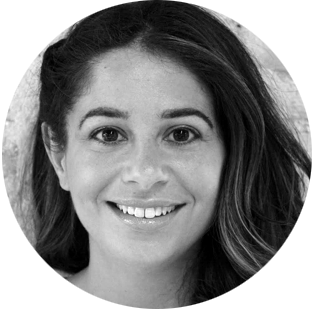 Salon host Dr. Rebecca Pardo is a Senior UX Researcher at Facebook. Previously, she led the research team at Normative, a software design and innovation firm in Toronto. Her research interests include tech-mediated communication; interfaces and interaction; linguistic anthropology and semiotics; and media, especially TV production.
Salon host Dr. Rebecca Pardo is a Senior UX Researcher at Facebook. Previously, she led the research team at Normative, a software design and innovation firm in Toronto. Her research interests include tech-mediated communication; interfaces and interaction; linguistic anthropology and semiotics; and media, especially TV production.
Data-Driven Design
Host: John Cain, Illinois Institute of Technology
Wednesday, 10 October, 10–11:00 am
about this salon
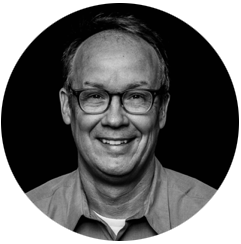 Salon host John Cain is a design strategist, serial entrepreneur, and educator whose career has focused on developing robust methods for creating products and services that draw on the humanities, technology, and design traditions. Cain was co-founder, with Rick Robinson, of pioneering human-centered research firms E-lab, and later, Iota Partners. Currently, Cain is Visiting Industry Professor at the Institute of Design, IIT where he devising new courses at the intersection of design, data and technology.
Salon host John Cain is a design strategist, serial entrepreneur, and educator whose career has focused on developing robust methods for creating products and services that draw on the humanities, technology, and design traditions. Cain was co-founder, with Rick Robinson, of pioneering human-centered research firms E-lab, and later, Iota Partners. Currently, Cain is Visiting Industry Professor at the Institute of Design, IIT where he devising new courses at the intersection of design, data and technology.
Building a Community of Practice
Wednesday, 10 October, 11:30 am–12:15 pm
about this salon
Career Transitions
Host: Keren Solomon, PicsArt Inc
Wednesday, 10 October, 11:30 am–12:15 pm
about this salon
 Salon host Keren Solomon has worked in the fields of research and user experience for 10+ years, moving between the corporate world, boutique research consulting firms, and independent consulting. In house, she’s led and built research at Intuit, YouTube, and PicsArt. Most of her work has been in consumer products, retail design, and technology, including mobile apps and social networks.
Salon host Keren Solomon has worked in the fields of research and user experience for 10+ years, moving between the corporate world, boutique research consulting firms, and independent consulting. In house, she’s led and built research at Intuit, YouTube, and PicsArt. Most of her work has been in consumer products, retail design, and technology, including mobile apps and social networks.
What Is Evidence?
Hosts: Emanuel Moss, CUNY & Friederike Schüür, Cloudera
Wednesday, 10 October, 11:30 am–12:15 pm
about this salon
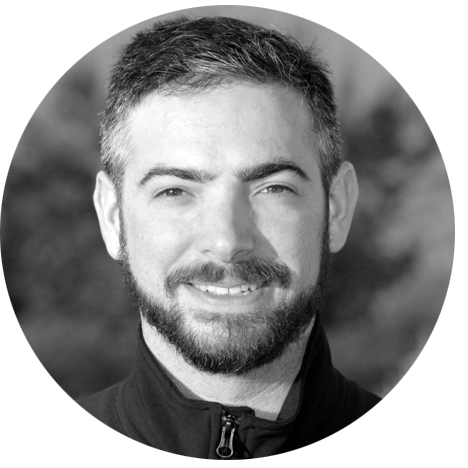 Salon co-host Emanuel Moss is a doctoral candidate in cultural anthropology at the CUNY Graduate Center, where he is conducting an ethnography of data science and studying the role of data scientists as producers of knowledge. He is particularly interested in how data science is shaped by technological, economic, ethical constraints and concerns. He also researches issues of fairness and accountability in machine learning at the Data & Society Research Institute. Emanuel holds a B.A. from the University of Illinois, and an M.A. from Brandeis University. He has previously worked as a digital and spatial information specialist for archaeological and environmental projects in the U.S. and Turkey.
Salon co-host Emanuel Moss is a doctoral candidate in cultural anthropology at the CUNY Graduate Center, where he is conducting an ethnography of data science and studying the role of data scientists as producers of knowledge. He is particularly interested in how data science is shaped by technological, economic, ethical constraints and concerns. He also researches issues of fairness and accountability in machine learning at the Data & Society Research Institute. Emanuel holds a B.A. from the University of Illinois, and an M.A. from Brandeis University. He has previously worked as a digital and spatial information specialist for archaeological and environmental projects in the U.S. and Turkey.
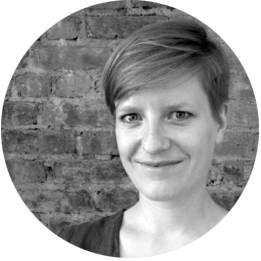 Salon co-host Friederike Schüür is a Research Engineer at Cloudera Fast Forward Labs where she imagines what machine learning in industry will look like in 6 months to 2 years; a time horizon that fosters ambition and yet provides firm grounding. The dives into new machine learning algorithms and data, it is what these algorithms feed on, to develop and showcase new machine learning capabilities to address real use cases. She works with external clients, from strategy to hands-on collaboration, to put data and machine learning to good use. She earned a PhD in Cognitive Neuroscience from University College London, a M.A. in Philosophy and a M. Sc. in Psychology from Radboud Universiteit Nijmegen. She is a data science for social good volunteer with DataKind and an advisor to an early-stage healthcare startup.
Salon co-host Friederike Schüür is a Research Engineer at Cloudera Fast Forward Labs where she imagines what machine learning in industry will look like in 6 months to 2 years; a time horizon that fosters ambition and yet provides firm grounding. The dives into new machine learning algorithms and data, it is what these algorithms feed on, to develop and showcase new machine learning capabilities to address real use cases. She works with external clients, from strategy to hands-on collaboration, to put data and machine learning to good use. She earned a PhD in Cognitive Neuroscience from University College London, a M.A. in Philosophy and a M. Sc. in Psychology from Radboud Universiteit Nijmegen. She is a data science for social good volunteer with DataKind and an advisor to an early-stage healthcare startup.
Distilling Research into Deliverables
Hosts: Ted McCarthy & Carolina Amiguet, Google
Session 1: Wednesday, 10 October, 1:45–2:45 pm
Session 2: Thursday, 11 October, 1:15–2:15 pm
about this salon
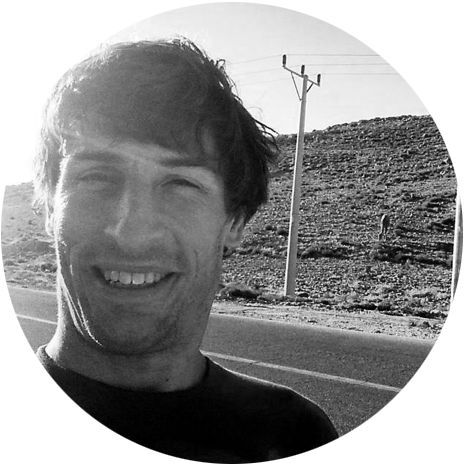 Salon co-host Ted McCarthy is a User Researcher in Google’s Next Billion Users, where he studies internet use in emerging markets. Previously, he was in product consulting and academia researching global health technology. He lives in San Francisco, which is blessedly still weird enough to allow for unique ethnographic explorations most days.
Salon co-host Ted McCarthy is a User Researcher in Google’s Next Billion Users, where he studies internet use in emerging markets. Previously, he was in product consulting and academia researching global health technology. He lives in San Francisco, which is blessedly still weird enough to allow for unique ethnographic explorations most days.
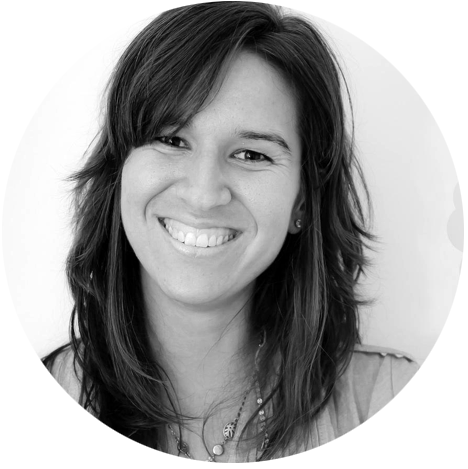 Salon co-host Carolina Amiguet leads UX Research for Google Photos where she helps her organization understand the needs and behaviors of users around the globe. She is originally from Puerto Rico and has lived across the US and Spain working in industries that range from fashion to tech.
Salon co-host Carolina Amiguet leads UX Research for Google Photos where she helps her organization understand the needs and behaviors of users around the globe. She is originally from Puerto Rico and has lived across the US and Spain working in industries that range from fashion to tech.
Ethnography and AI
Session 1: Host: Mark Burrell & Jeff Sokolov, IBM, Wednesday, 10 October, 1:45–2:45
Session 2: Host: Martha Bird, ADP, Thursday, 11 October, 10–11:00 am
about this salon
We are moving into a world in which artificial intelligence and machine learning are shaping the spaces we engage with and through and changing our prosthetic capabilities. What does this mean for ethnographic praxis? In this salon, we’ll discuss the implications of this dynamic space on methods, objects of study, and more.
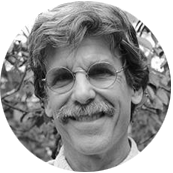 Co-host Mark Burrell, PhD is a clinical psychologist who spent the first chapter of his professional career doing clinical work, teaching, and research in diverse settings. Over the past two decades he has been doing research and designing innovative technology solutions with a particular emphasis on enabling and supporting human discovery, decision making, well-being, and transformation. Mark is currently the Design Director for IBM Watson Health, happily grappling with how to apply cognitive technologies to aid human beings and solve wicked problems in the world of health.
Co-host Mark Burrell, PhD is a clinical psychologist who spent the first chapter of his professional career doing clinical work, teaching, and research in diverse settings. Over the past two decades he has been doing research and designing innovative technology solutions with a particular emphasis on enabling and supporting human discovery, decision making, well-being, and transformation. Mark is currently the Design Director for IBM Watson Health, happily grappling with how to apply cognitive technologies to aid human beings and solve wicked problems in the world of health.
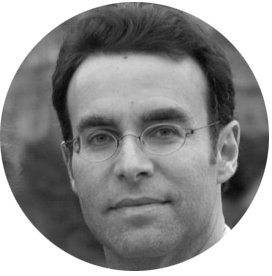 Co-host Jeff Sokolov is a Design Research Lead at IBM Watson Health. He uses a mixed methods approach to design compelling experiences that support the discovery and sense-making behaviors of physicians. He also facilitates a guild in designing for AI and Healthcare. Jeff holds a PhD in Cognitive-Developmental Psychology from Carnegie Mellon University and a BA from UC San Diego.
Co-host Jeff Sokolov is a Design Research Lead at IBM Watson Health. He uses a mixed methods approach to design compelling experiences that support the discovery and sense-making behaviors of physicians. He also facilitates a guild in designing for AI and Healthcare. Jeff holds a PhD in Cognitive-Developmental Psychology from Carnegie Mellon University and a BA from UC San Diego.
Session 2
We are moving into a world in which artificial intelligence and machine learning are shaping the spaces we engage with and through and changing our prosthetic capabilities. What does this mean for ethnographic praxis? In this Salon, we’ll discuss the implications of “AI’s” dynamic technical and cultural agendas on methods, objects of study, and more. You will be encouraged to share your hopes and fears and speculations as well as contribute to discussion on where we might go from here to advance our practices.
Co-host Martha Bird is a Business Anthropologist at ADP’s Innovation Lab. For more than 15 years, Martha has collaborated with global brands to create meaningful services, experiences, and products. Cultural wisdoms and the everyday encounters out of which new practices take shape, evolve and transform the way we work are often on her mind.
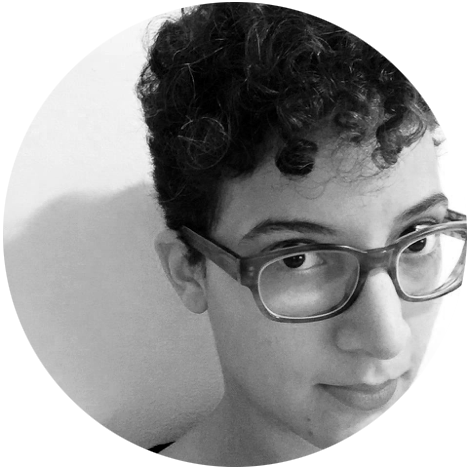 Co-host Danya Glabau, PhD, is an anthropologist, science and technology studies (STS) scholar, and feminist futurist. She the Founder of Implosion Labs, an ethnography-driven speculative research group; Co-Organizer of the NYC-based QX, a group exploring the intersections of technology, design, and queer life; a Core Faculty member at the Brooklyn Institute for Social Research; and Adjunct Instructor in the Technology, Culture, and Society department at NYU Tandon School of Engineering. Her book-in-progress examines patient activism in the United States, while her consulting work focuses on researching, designing, and advocating for technology that will truly enrich the societies of the future.
Co-host Danya Glabau, PhD, is an anthropologist, science and technology studies (STS) scholar, and feminist futurist. She the Founder of Implosion Labs, an ethnography-driven speculative research group; Co-Organizer of the NYC-based QX, a group exploring the intersections of technology, design, and queer life; a Core Faculty member at the Brooklyn Institute for Social Research; and Adjunct Instructor in the Technology, Culture, and Society department at NYU Tandon School of Engineering. Her book-in-progress examines patient activism in the United States, while her consulting work focuses on researching, designing, and advocating for technology that will truly enrich the societies of the future.
The Value of Small-n Research
Host: Dilan Mahendran, Google
Thursday, 11 October, 10–11:00 am
about this salon
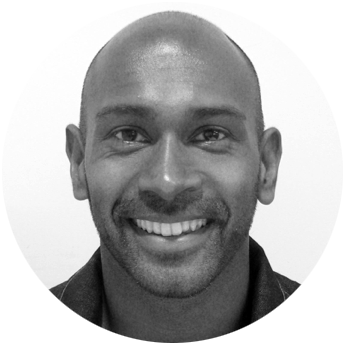 Salon host Dilan Mahendran is an enterprise UX researcher in Google Ads. In his early graduate research he conducted an ethnography of the Python programming community and a videography of UNIX sys admins for Sun Microsystems. As a part of his doctoral research he conducted a three year ethnographic study of Hip Hop digital music production in afterschool programs for the Macarthur Foundation’s Digital Youth project.
Salon host Dilan Mahendran is an enterprise UX researcher in Google Ads. In his early graduate research he conducted an ethnography of the Python programming community and a videography of UNIX sys admins for Sun Microsystems. As a part of his doctoral research he conducted a three year ethnographic study of Hip Hop digital music production in afterschool programs for the Macarthur Foundation’s Digital Youth project.
Ethnographic Film
Host: Nick Agafonoff, RealEthnography
Thursday, 11 October, 11:15 am–12:00pm
about this salon
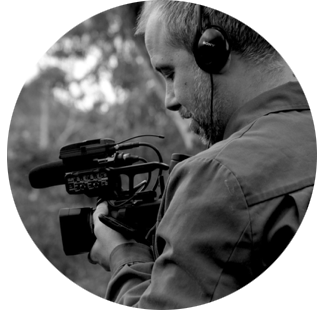 Salon host Nick Agafonoff has worked as a commercial researcher/video ethnographer in Australia since 1998, where he is Director of The Practice Insights and Real Ethnography. Nick’s inquiry has spanned across government, not-for-profit and corporate research clients, exploring everything from military cultures, to hair removal product usage, from online video consumption behaviour, to cultural branding of alcohol.
Salon host Nick Agafonoff has worked as a commercial researcher/video ethnographer in Australia since 1998, where he is Director of The Practice Insights and Real Ethnography. Nick’s inquiry has spanned across government, not-for-profit and corporate research clients, exploring everything from military cultures, to hair removal product usage, from online video consumption behaviour, to cultural branding of alcohol.
Datafication in Society
Host: Jess Freaner, IDEO
Thursday, 11 October, 1:15–2:15 pm
about this salon
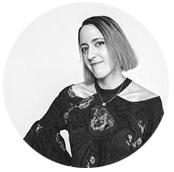 Salon host Jess Fraener is a Design Lead and Data Scientist at IDEO with an interest in data ethics and human-centered data science. She enjoys exploring society’s preconceptions & misconceptions of truth(s) and believes there’s poetry in visualizing and transforming data. At work, she tackles problems in arenas ranging from fashion to healthcare.
Salon host Jess Fraener is a Design Lead and Data Scientist at IDEO with an interest in data ethics and human-centered data science. She enjoys exploring society’s preconceptions & misconceptions of truth(s) and believes there’s poetry in visualizing and transforming data. At work, she tackles problems in arenas ranging from fashion to healthcare.
Unconference-Style Salons
Facilitator: Tom Rowley, Stripe Partners
2 concurrent sessions, Thursday, 10 October, 2:45–3:45
*20 participants per session, no pre-registration—attendance is first-come, first served
about this salon
Embracing Diversity: Reflecting on Our Practice, Our Community, and the Road Ahead
Hosts: Fatimah Richmond, Google & Tamara Hale, Workday
Thursday, 11 October, 12:15–1:15 pm
*50 participants, no pre-registration—attendance is first-come, first served
about this salon
Building on last year’s salon on Ethnography and Equality, this salon will deepen the discussion of the unique role of ethnographers and ethnographic practices in contributing to discussions around Diversity and Inclusion. The emphasis of the forum will be on hearing and discussing stories in a facilitated table discussion. We will work through specific scenarios provided by our own community. This forum will also be an active listening session for EPIC organizers to better understand our community’s priorities and perspectives on this topic. There will also be an opportunity to take learnings from the forum further through an ‘unconference’ activity following the forum, which you are welcome to participate in even if you did not attend the forum.
Due to the nature of this topic, participation will be capped at 50. We will close the doors after the sessions begins to prevent disruption during the reflection period.
As always, if something of immediate concern arises in the course of the conference, please do not hesitate to contact one of the conference chairs so we can ensure a safe environment for everyone.
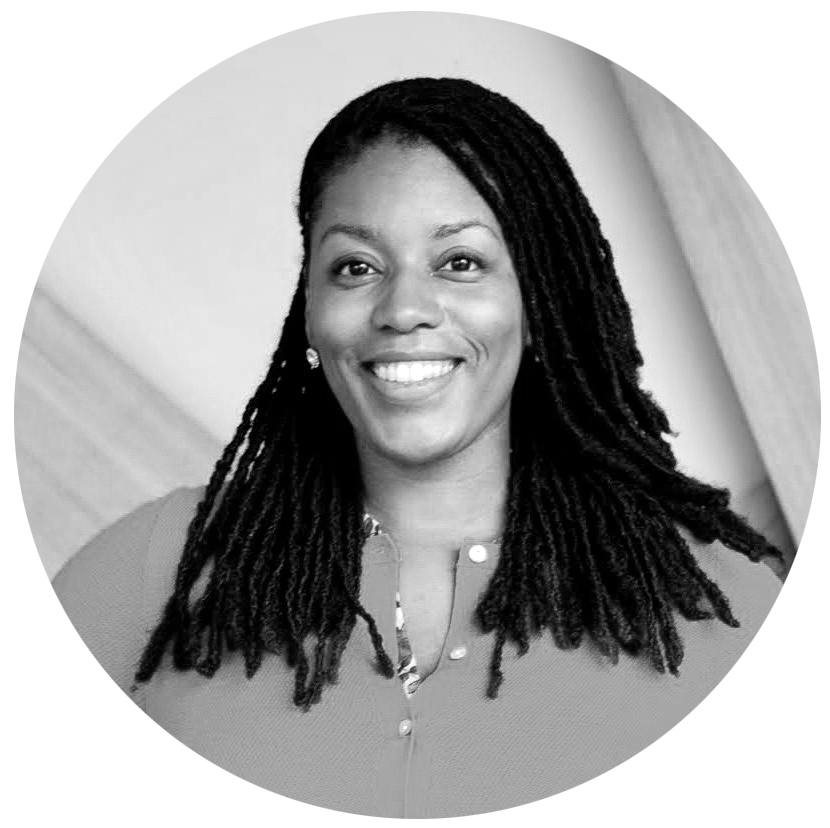 Salon co-host Fatimah Richmond is a Senior User Experience Researcher at Google focused on enterprise social networking. Fatimah has over 13 years of industry experience and her academic background includes: bachelors in Computer Science from Tuskegee University, graduate studies in Human Factors, Applied Anthropology and Ethnographic Methods from San Jose State University and UC Berkeley, Center of Ethnographic Research.
Salon co-host Fatimah Richmond is a Senior User Experience Researcher at Google focused on enterprise social networking. Fatimah has over 13 years of industry experience and her academic background includes: bachelors in Computer Science from Tuskegee University, graduate studies in Human Factors, Applied Anthropology and Ethnographic Methods from San Jose State University and UC Berkeley, Center of Ethnographic Research.
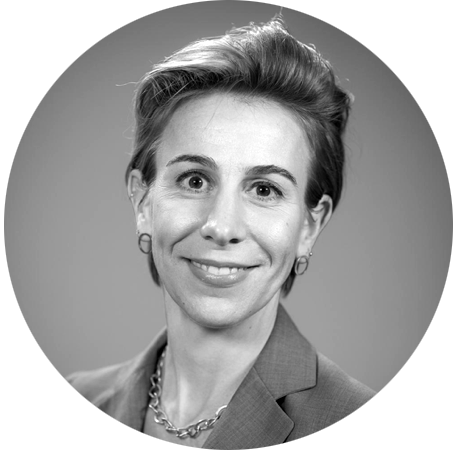 Salon co-host Tamara Hale, PhD, is the Principal UX Researcher at Workday where she provides research strategy and leadership across all products and drives Workday’s inclusive design efforts. She has a PhD in Cultural Anthropology from the London School of Economics and is a Co-Organizer of Flatirons LGBTQ Tech, a Colorado-based professional group working towards increasing diversity and inclusivity within the technology industry with over 700 members.
Salon co-host Tamara Hale, PhD, is the Principal UX Researcher at Workday where she provides research strategy and leadership across all products and drives Workday’s inclusive design efforts. She has a PhD in Cultural Anthropology from the London School of Economics and is a Co-Organizer of Flatirons LGBTQ Tech, a Colorado-based professional group working towards increasing diversity and inclusivity within the technology industry with over 700 members.